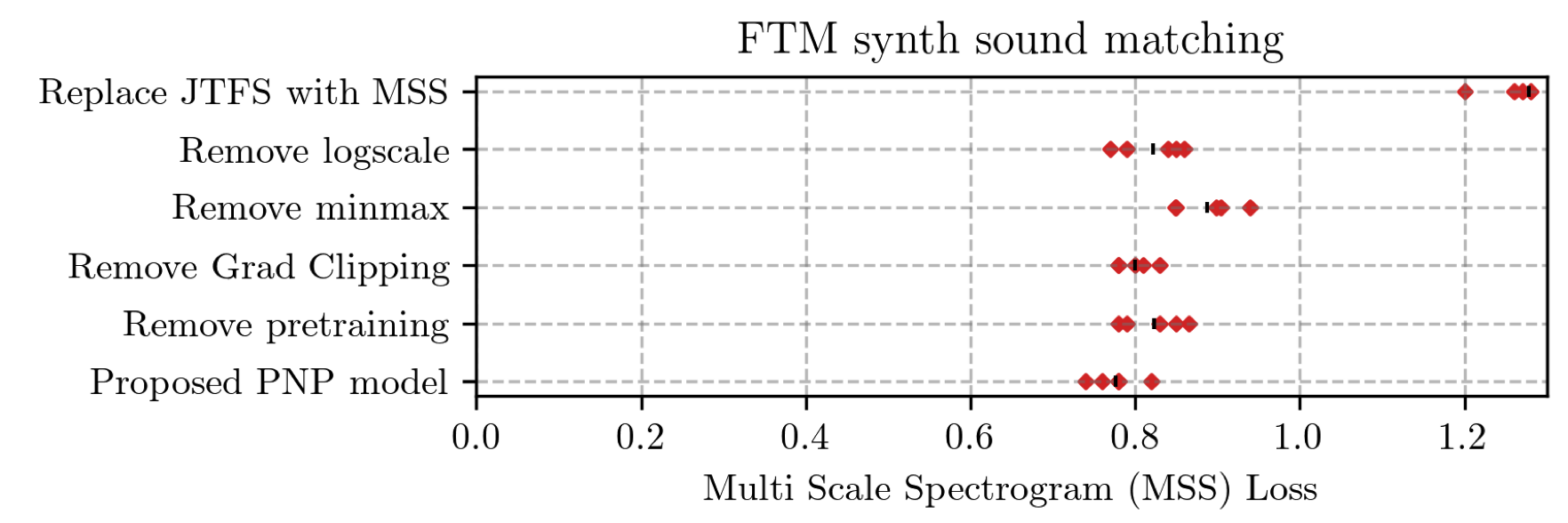
Learning to Solve Inverse Problems for Perceptual Sound Matching
Articles dans une revue
Auteurs : Han Han, Vincent Lostanlen, Mathieu Lagrange.
Publié dans : IEEE/ACM Transactions on Audio, Speech and Language Processing
Date de publication : 2024
Inverse problemsParameter estimationSynthesizerNeural network